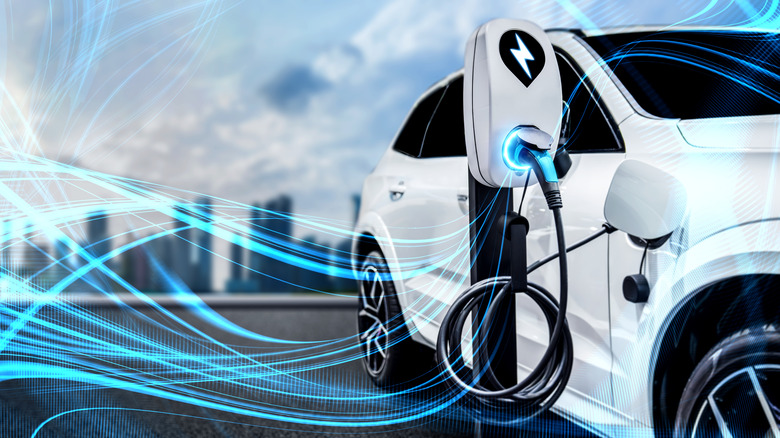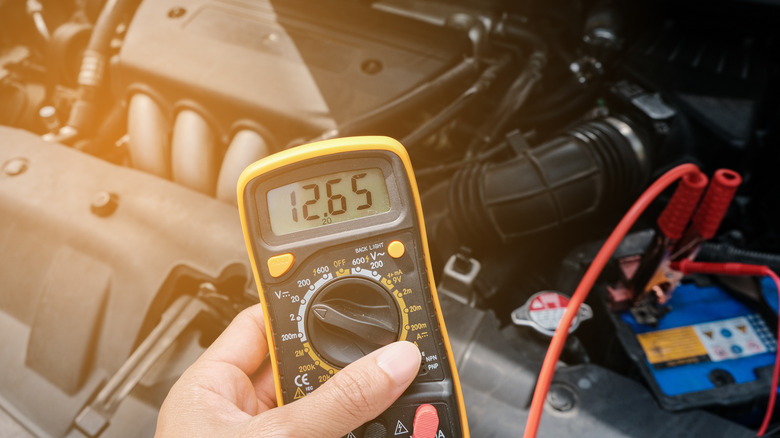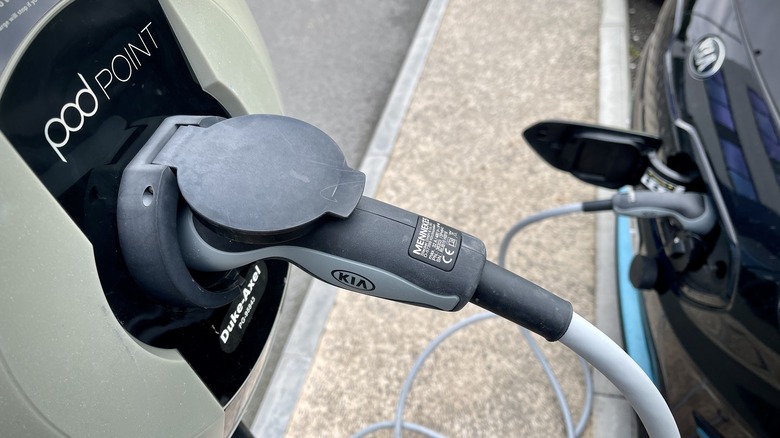The Most Important Things You Need To Check Before Buying A Used Electric Car
Until recently, there wasn't much of an appetite for electric vehicles in the United States. Today, however, this couldn't be further from the truth. Interest in owning electric vehicles or EVs is rising, but what is fascinating about this trend is an ever-growing interest in car owners purchasing used EVs rather than brand new ones. It is a phenomenon partly fueled by a global chip shortage, and partly by rising gas prices. According to estimates by Recurrent, half a million used electric cars were set to be sold in the United States at the end of 2021. This is more than double the number of EVs that were sold over the prior three years (via Wired).
Just like a gas car, you have to watch out for certain things if you don't want to end up with a lemon on your hands. Read on to see the most important things to look at before you commit to buying a pre-owned EV.
Battery condition is everything
For electric vehicles, the battery is the pulsing heart that it depends on to run. So, it's especially important when you are looking for a used EV that the battery must be in top condition. Most EVs have separate warranties for the vehicle and the battery, and you should check to see if it's still good. Most warranties cover a minimum of eight years, and 100,000 miles or more (via MakeUseOf).
Additionally, you need to see if there are signs of battery degradation. Factors such as temperature, charge and discharge cycles, and time (they lose performance over time) all affect battery quality (via The Equation). So, it's important that you get the battery thoroughly checked before you buy. Unless you have the same industrial equipment that manufacturers have, it's unlikely that you can test it yourself (via Jerry). The best way is to bring the battery to a professional to get it tested. Car manufacturers will carry out many diagnostic tests to assess if it's in good shape.
You need to know the charging rate and available access
It's important to know how long will it take for the car you want to fully charge. Electric vehicles are not all the same and can have varied charge times depending on battery size. As a rule of thumb, bigger batteries will take more time to charge. Additionally, depending on the brand and model you want to buy, charging your car can take anywhere from 30 minutes to half a day (via Kia).
You also want to see if you have access to charging your EV around the places that you visit the most. And if you plan to road trip, you'll need to plot out EV charging points along the way.
So, make sure that you research where the nearest charging stations are located in your area, especially if you do not have one set up at your home (though this is the best option). For EV owners, the type of EV chargers you need to have is also important to know. There are three different charger levels to choose from: Level 1, Level 2, and Level 3(also known as DC Fast Chargers) (via KBB). For home charging, Level 2 chargers make the most sense because they charge relatively fast and can be plugged into a 240v outlet, which is common in most homes (via 365 Pronto).


